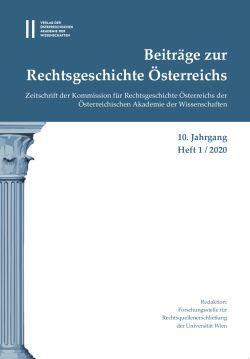
Beiträge zur Rechtsgeschichte Österreichs 10. Jahrgang Heft 1/2020, pp. 124-148, 2020/05/06

The timeframe for the prosecution of Nazi crimes was limited in Austria by extinctive prescription. Shortly before the last and most severe crimes became unpunishable in the early 1960s, the Austrian government faced heavy pressure from foreign governments and international organisations as well as groups of former victims and resistance fighters to extend or even abolish the limitation period for the most severe crimes. The measures considered for extending the timeframe for the prosecution of Nazi crimes raised legal questions, especially concerning the principle of non-retroactivity. However, the public, political and even academic debates were closely connected to the popular aim of finally putting an end to the preoccupation with the Austrian population’s participation in the atrocities committed. In the following paper, the Austrian discourse concerning an extension of the limitation period for Nazi crimes, the problem’s solution and its consequences will for the first time be examined from a legal as well as a historical perspective based on primary sources.
Keywords: extinctive prescription – Nazi crimes – principle of non-retroactivity – retroactive extension